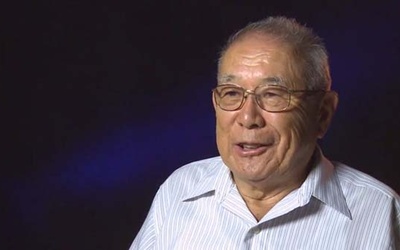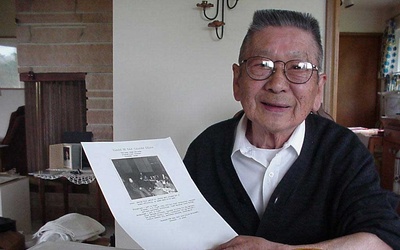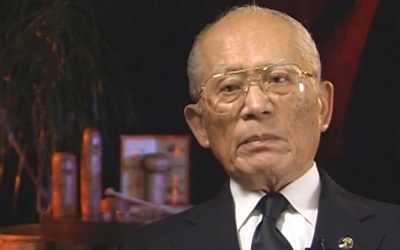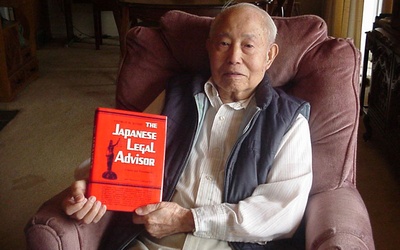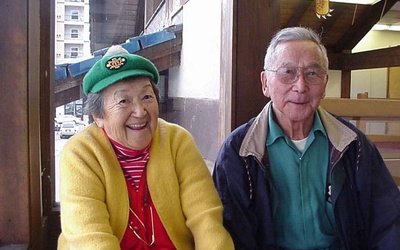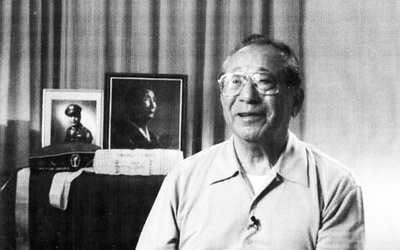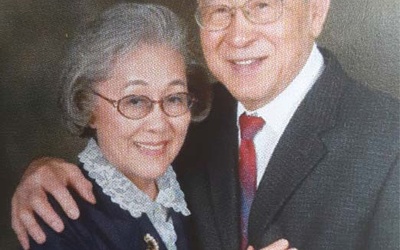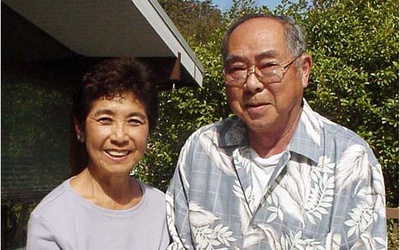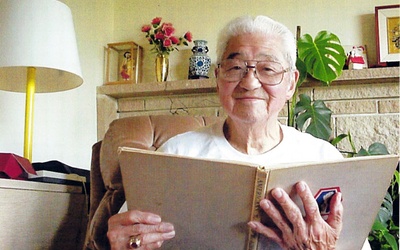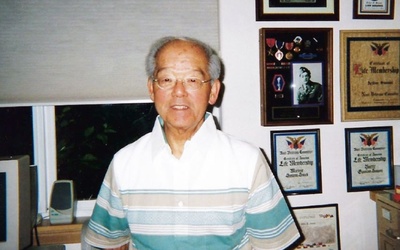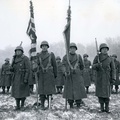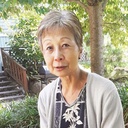
Mikiko Amagai
@mamagaiiMikiko Amagai was Managing Editor of The North American Post, the Seattle Japanese-community newspaper, from 2001 to 2005. Of her tenure, Mikiko feels that the most memorable articles she wrote were her interviews of the Seattle Nisei veterans—all but one now deceased. She obtained their stories by “just letting them talk.” She published the accounts in both English and Japanese. On November 1, 2020, Mikiko returned to Tokyo after 44 years in Seattle.
Updated January 2021
Stories from This Author
A Tribute
Dec. 20, 2021 • Mikiko Amagai
I stopped writing the series “Quiet Warriors” unexpectedly. “Mikiko, you have a bad reputation,” Tosh Okamoto said when I called him for his turn. He had originally brought the list of surviving Nisei veterans to interview to the NAP office. “I’m not ready…” he had replied. “What do you have to be ready for? You can just tell me what you saw or how you feel about it now,” I assured him. “No, no. You know, people die after you …
Yoshito Iwamoto
Nov. 17, 2021 • Mikiko Amagai
“They always thought I was Japanese while in the Philippines. Several of us went to a café. A guy asked, ‘Do you want some Japanese tea?’ And he ran to a piano and played ‘Gunkan Marchi’ (Warship March) and then ‘Shina no Yoru’ (China Nights). They believed we were Japanese in spite of our US Army uniforms.” Yoshito Iwamoto remembers those days, smiling. He was sent to the Philippines and then to Japan as a MIS (Military Intelligence Service) translator …
Takashi Matsui
Nov. 3, 2021 • Mikiko Amagai
“They say, ‘History is written by the winners.’ Well, it’s not fair to try only the losers. What about the ones who dropped an A-bomb and killed hundreds of thousands civilians in Hiroshima? There are some Americans who criticized the proceedings at the Tokyo Trial in 1946 but the United States was the winner. They said that it should have been conducted by the neutral countries, not the winners.” Such are the thoughts of Takashi Matsui, who was involved in …
George Koshi
Oct. 6, 2021 • Mikiko Amagai
“I forgot Japanese,” George Koshi, a 92-year-old MIS veteran, modestly said in Japanese with a perfect Japanese accent. He was the only American legal officer in Japan during its occupation period after World War II (1945-1952) who spoke Japanese. Between George and a framed picture of his late wife, Ai, smiles his daughter, Joyce, who was born during this period. George’s parents came from Kumamoto. “My father first came to Colorado, then my grandfather arranged a wife for him and …
Jimmie Kanaya
Sept. 15, 2021 • Mikiko Amagai
“No, I didn’t get discharged. I stayed (in the U.S. Army after World War II) and went to Korea,” said Jimmie Kanaya. As a teenager, he was always fascinated with all the military branches. “Before the war was over in Japan, they (the army) wanted to train military government officers to occupy Japan. So, we started (studying) Japanese, Japanese religion, customs… I even taught Japanese. ‘Doko ni ikimasuka1’ or something like that, you know.” But when the war was over …
Min (Minoru) Tsubota
Aug. 29, 2021 • Mikiko Amagai
“I had it in my backpack. I couldn’t wash it. Okaasan collected 1,000 stitches at Tule Lake from 1,000 different women, one stitch for one. If you were born in the Year of Tiger, you can stitch as many as you want because tigers are strong and it’s good luck.” Min Tsubota, a 442nd Regimental Combat Team veteran, was showing his 60-year-old “senninbari,” a long sash with 1,000 stitches. Though it has a few small stains, it still looks almost …
Paul Hosoda
June 16, 2021 • Mikiko Amagai
“Equality and justice, that’s the foundation,” Paul Hosoda says about his beliefs. “[We] all should be given the same chance to be treated equally as everyone else…That’s God’s gift.”. Sitting next to Paul, his wife Mary smiles. They have been together for 48 years, since they met at Blaine Memorial United Methodist Church after the war. “We (Fort Lewis Nisei) spent weekends in Seattle and on Sundays, I went to church—of course, to meet girls. It’s a good place to …
Mitsuru Takahashi
April 21, 2021 • Mikiko Amagai
“[A] Bronze Star doesn’t really mean very much. Every soldier that was overseas got it. This is the Silver Star and this is the Purple Heart. Dog Tag. And the Presidential Citation. And this is the discharge paper,” explains Mitsuru Takahashi showing the framed memoirs with a smile. His wife June, the high school sweetheart from Minidoka Camp, put it together. “Where did you get hurt?” I asked him. The expression on his face turned stiff and he answered, “I …
Pat Hagiwara
April 7, 2021 • Mikiko Amagai
“I feel lucky; my life was (lucky) all the way from my birth. In Alaska, I was growing up very close to each other (other Nikkei)… there was only one school, from kindergarten to high school, in one building… In wintertime, the main drag (Stedman St., Ketchikan) was a hill; the stores blocked off the street with boards, so kids could slide for several blocks…” Pat Hagiwara talks cheerfully, as though it happened yesterday. He was one of four Nisei …
Art Susumi
March 24, 2021 • Mikiko Amagai
“No, I wasn’t afraid. I saw a lot of dead bodies around me during the war,” said Art Susumi, who became an undertaker at the age of 22. That was his answer to the question, “Are you afraid to sleep under the same roof with dead bodies?” Art received a Bronze Star during World War II for rescuing wounded soldiers of the 442nd Regimental Combat Team in spite of his own injuries. After the war was over, he became the …

